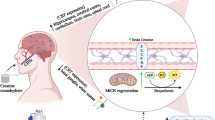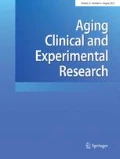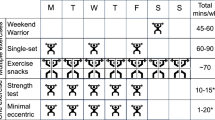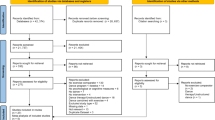Abstract
Background
Aging is often accompanied by decline in aspects of cognitive function. Cognitive decline has harmful effects on living independence and general health. Resistance training is seen as a promising intervention to prevent or delay cognitive deterioration, yet the evidence from reviews is less consistent.
Aim
To assess the effect of resistance training on cognition in the elderly with and without mild cognitive impairment and to provide an up-to-date overview.
Methods
A search was conducted using PUBMED, Web of science, MEDLINE, CINAHL, Cochrane Library, EMBASE, Wan Fang, and China National Knowledge Infrastructure. The searches were limited to articles published in English or Chinese from January 2010 to September 2017.
Results
The search returned 2634 records, of which 12 articles were included in the systematic review. Main results showed that resistance training had positive effects on the executive function and global cognitive function of the elderly, and short-term interventions had little positive effect on memory and attention. Secondary results demonstrated that there was a significant benefit of triweekly resistance training in global cognitive function and biweekly in executive function of the elderly.
Conclusions
Resistance training had positive effects on the executive cognitive ability and global cognitive function among the elderly; however, it had a weak-positive impact on memory. No significant improvement was found in attention. Triweekly resistance training has a better effect on general cognitive ability than biweekly. Further studies are needed focusing on the development and application of resistance training among the elderly.


Similar content being viewed by others

References
Cummings SR (2007) The biology of aging. J Musculoskelet Neuronal Interact 7:340–341
Leger D et al (2008) An international survey of sleeping problems in the general population. Curr Med Res Opin 24:307–317
Roubenoff R (2000) Sarcopenia and its implications for the elderly. Eur J Clin Nutr 54:S40–S47
Carlson MC et al (2009) Executive decline and dysfunction precedes declines in memory: the Women’s Health and Aging Study II. J Gerontol A Biol Sci Med Sci 64:110–117
van Dam PS, Aleman A (2004) Insulin-like growth factor-I, cognition and brain aging. Eur J Pharmacol 490:87–95
Karimi S et al (2016) Surveying the effects of an exercise program on the sleep quality of elderly males. Clin Interv Aging 11:997–1002
Ganguli M et al (2004) Mild cognitive impairment, amnestic type: an epidemiologic study. Neurology 63:115–121
Lox CL et al (2006) The psychology of exercise; integrating theory and practice, 2nd edn. Ringgold
Tsai CL et al (2015) The effects of long-term resistance exercise on the relationship between neurocognitive performance and GH, IGF-1, and homocysteine levels in the elderly. Front Behav Neurosci 9:23
Doody RS et al (2009) Donepezil treatment of patients with MCI: a 48-week randomized, placebo-controlled trial. Neurology 72:1555–1561
Dik MG et al (2003) Insulin-like growth factor I (IGF-I) and cognitive decline in older persons. Neurobiol Aging 24:573–581
Gligoroska JP, Manchevska S (2012) The effect of physical activity on cognition—physiological mechanisms. Mater Sociomed 24:198–202
Erickson KI et al (2011) Exercise training increases size of hippocampus and improves memory. Proc Natl Acad Sci USA 108:3017–3022
Tolwani RJ et al (2002) BDNF overexpression increases dendrite complexity in hippocampal dentate gyrus. Neuroscience 114:795–805
Northey JM et al (2018) Exercise interventions for cognitive function in adults older than 50: a systematic review with meta-analysis. Br J Sports Med 52:154–160
Cai H et al (2017) Effect of exercise on cognitive function in chronic disease patients: a meta-analysis and systematic review of randomized controlled trials. Clin Interv Aging 12:773–783
Zheng G et al (2016) Aerobic exercise ameliorates cognitive function in older adults with mild cognitive impairment: a systematic review and meta-analysis of randomised controlled trials. Br J Sports Med. https://doi.org/10.1136/bjsports-2015-095699
Colcombe S, Kramer AF (2003) Fitness effects on the cognitive function of older adults: a meta-analytic study. Psychol Sci 14:125–130
Williams MA et al (2007) Resistance exercise in individuals with and without cardiovascular disease: 2007 update: a scientific statement from the American Heart Association Council on Clinical Cardiology and Council on Nutrition, Physical Activity, and Metabolism. Circulation 116:572–584
Chang YK et al (2014) Effects of acute resistance exercise on cognition in late middle-aged adults: general or specific cognitive improvement? J Sci Med Sport 17:51–55
Chen M-C et al (2016) Elastic band exercises improved activities of daily living and functional fitness of wheelchair-bound older adults with cognitive impairment: a cluster randomized controlled trial. Am J Phys Med Rehabil 95:789–799
Cassilhas RC et al (2007) The impact of resistance exercise on the cognitive function of the elderly. Med Sci Sports Exerc 39:1401–1407
Perrig-Chiello P et al (1998) The effects of resistance training on well-being and memory in elderly volunteers. Age Ageing 27:469–475
Chang YK et al (2012) Effect of resistance-exercise training on cognitive function in healthy older adults: a review. J Aging Phys Act 20:497–517
Saez de Asteasu, ML et al (2017) Role of physical exercise on cognitive function in healthy older adults: a systematic review of randomized clinical trials. Ageing Res Rev 37:117–134
Moher D et al (2009) Preferred reporting items for systematic reviews and meta-analyses: the PRISMA statement. Ann Intern Med 151:264–269
Higgins JP et al (2011) The Cochrane Collaboration’s tool for assessing risk of bias in randomised trials. BMJ 343:d5928
Higgins JPT, Green S (2011) Cochrane Handbook for Systematic Reviews of Interventions Version 5.1.0 [updated March 2011]. The Cochrane Collaboration, London
Liu-Ambrose T et al (2010) Resistance training and executive functions a 12-month randomized controlled trial. Arch Intern Med 170:170–178
Best JR et al (2015) Long-term effects of resistance exercise training on cognition and brain volume in older women: results from a randomized controlled trial. J Int Neuropsychol Soc 21:745–756
Fragala MS et al (2014) Resistance exercise may improve spatial awareness and visual reaction in older adults. J Strength Cond Res 28:2079–2087
Coetsee C, Terblanche E (2017) The effect of three different exercise training modalities on cognitive and physical function in a healthy older population. Eur Rev Aging Phys Act 14:13
Hong SG, Kim JH, Jun TW (2017) Effects of 12-week resistance exercise on electroencephalogram patterns and cognitive function in the elderly with mild cognitive impairment: a randomized controlled trial. Clin J Sport Med. https://doi.org/10.1097/JSM.0000000000000476
Yoon DH et al (2017) Effect of elastic band-based high-speed power training on cognitive function, physical performance and muscle strength in older women with mild cognitive impairment. Geriatr Gerontol Int 17:765–772
Davis JC et al (2013) An economic evaluation of resistance training and aerobic training versus balance and toning exercises in older adults with mild cognitive impairment. PLoS One 8:e63031
Nagamatsu LS et al (2012) Resistance training promotes cognitive and functional brain plasticity in seniors with probable mild cognitive impairment. Arch Intern Med 172:666–668
Mavros Y et al (2017) Mediation of cognitive function improvements by strength gains after resistance training in older adults with mild cognitive impairment: outcomes of the study of mental and resistance training. J Am Geriatr Soc 65:550–559
Kimura K et al (2010) The influence of short-term strength training on health-related quality of life and executive cognitive function. J Physiol Anthropol 29:95–101
Smolarek Ade C et al (2016) The effects of strength training on cognitive performance in elderly women. Clin Interv Aging 11:749–754
Iuliano E et al (2015) Effects of different types of physical activity on the cognitive functions and attention in older people: a randomized controlled study. Exp Gerontol 70:105–110
Etnier JL, Chang YK (2009) The effect of physical activity on executive function: a brief commentary on definitions, measurement issues, and the current state of the literature. J Sport Exerc Psychol 31:469–483
Lindwall M, Rennemark M, Berggren T (2008) Movement in mind: the relationship of exercise with cognitive status for older adults in the Swedish National Study on Aging and Care (SNAC). Aging Ment Health 12:212–220
Rivera D et al (2015) Stroop Color-Word Interference Test: normative data for the Latin American Spanish speaking adult population. NeuroRehabilitation 37:591–624
Al-Delaimy WK, von Muhlen D, Barrett-Connor E (2009) Insulin like growth factor-1, insulin like growth factor binding protein-1, and cognitive function in older men and women. J Am Geriatr Soc 57:1441–1446
Barha CK et al (2017) Sex differences in exercise efficacy to improve cognition: a systematic review and meta-analysis of randomized controlled trials in older humans. Front Neuroendocrinol 46:71–85
Liu-Ambrose T, Donaldson MG (2009) Exercise and cognition in older adults: is there a role for resistance training programmes? Br J Sports Med 43:25–27
Ford AH et al (2012) Homocysteine, methylenetetrahydrofolate reductase C677T polymorphism and cognitive impairment: the health in men study. Mol Psychiatry 17:559–566
Ford AH et al (2013) Homocysteine, depression and cognitive function in older adults. J Affect Disord 151:646–651
Aleman A et al (1999) Insulin-like growth factor-I and cognitive function in healthy older men. J Clin Endocrinol Metab 84:471–475
Cassilhas RC et al (2012) Resistance exercise improves hippocampus-dependent memory. Braz J Med Biol Res 45:1215–1220
Greblo Jurakic Z et al (2017) Effects of feedback-based balance and core resistance training vs. Pilates training on cognitive functions in older women with mild cognitive impairment: a pilot randomized controlled trial. Aging Clin Exp Res 29:1295–1298
McGaughy J, Eichenbaum H (2002) It’s time to pay attention to attention in aging. Learn Mem 9:151–152
Montero-Odasso M et al (2009) Quantitative gait analysis under dual-task in older people with mild cognitive impairment: a reliability study. J Neuroeng Rehabil 6:35
Chang YK, Etnier JL (2009) Exploring the dose-response relationship between resistance exercise intensity and cognitive function. J Sport Exerc Psychol 31:640–656
Funding
This research is funded by Natural Science Foundation of Jilin Province (20160101215JC).
Author information
Authors and Affiliations
Corresponding author
Ethics declarations
Conflict of interest
The authors declare that they have no conflict of interest.
Ethical approval
This article does not contain any studies with human participants or animals performed by any of the authors.
Informed consent
For this type of study, formal consent is not required.
Rights and permissions
About this article
Cite this article
Li, Z., Peng, X., Xiang, W. et al. The effect of resistance training on cognitive function in the older adults: a systematic review of randomized clinical trials. Aging Clin Exp Res 30, 1259–1273 (2018). https://doi.org/10.1007/s40520-018-0998-6
Received:
Accepted:
Published:
Issue Date:
DOI: https://doi.org/10.1007/s40520-018-0998-6



